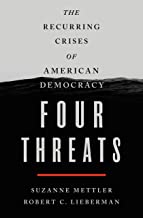George knew. Now we do, too.
George Washington in his farewell address, Saturday, September 17, 1796:
“However [political parties] may now and then answer popular ends, they are likely in the course of time and things, to become potent engines, by which cunning, ambitious, and unprincipled men will be enabled to subvert the power of the people and to usurp for themselves the reins of government, destroying afterwards the very engines which have lifted them to unjust dominion.”
~
I’ve wanted to see this documentary since it premiered at the Sundance Film Festival in January, winning the U.S. Grand Jury Prize for Documentary. I’m grateful that I was finally able to stream it this evening, at the end of a week shrouded in deep despair after Ruth Bader Ginsberg’s untimely passing and a nomination to the Supreme Court that will mostly likely undue 50 years of RBG’s tireless human rights and gender rights pursuits. Boys State has given me a glimmer, a moment, of hope, showing a microcosm of our general great political process, and those young voices and minds who are poised, and want, to lead this country.
I don’t believe the United States is truly a democracy…not any more. Maybe what we’re trying to steer, and salvage, at this point is a fractured political process, once guided by a constitution that, although not guaranteeing protection, has given us a frame to serve the people…we the people…with accepted norms, practices, and behaviors of those we elected into office. Now, it’s seemingly only about power, and greed, and ‘winning’, at all costs.
Boys State is a documentary about a high-school civics conference where every year, more than 1,000 young men, age 16 or 17, meet at the Texas State Capitol to participate in a mock government. They section off into the Federalist and Nationalist parties to elect various political positions and vie for the highest position—governor.
Hope is not a word that comes easily to me now, yet this film shares, while holding a mirror to our divided country, a glimpse of hope, possibility, and passion for what America could once again aspire to be.
I suggest coupling the film with a podcast that gives explanation and history to where we’ve landed, detailing the risks…the perfect storm…we are facing in this national election.
-dayle
From host Ezra Klein at VOX:
‘The death of Ruth Bader Ginsburg, just weeks before a presidential election, leaves us in dangerous waters. It’s easy to imagine a scenario in which the election outcome is contested by one side and is ultimately determined by a Supreme Court with the deciding vote cast by Trump’s recent appointee. Indeed, both Sen. Ted Cruz and President Donald Trump have named this scenario as driving their urgency to replace Ginsburg. At that point, a legitimacy crisis looms.
Suzanne Mettler is the John L. Senior Professor of American Institutions at Cornell University. Her work has focused on trust between citizens and their governments, but recently, she’s co-written, with Robert Lieberman, a book that is tailor-made for this moment:
Its thesis is a dark one: America’s most dangerous political crises have been driven by four kinds of threat:
- political polarization
- democratic exclusion
- economic inequality
- executive power.
But this is the first time all four threats are present simultaneously.
“It may be tempting to think that we have weathered severe threats before and that the Constitution protected us,” they write. “But that would be a misreading of history, which instead reveals that democracy is indeed fragile, and that surviving threats to it is by no means guaranteed.”
We discuss where Ginsburg’s passing leaves us, what 2020 election scenarios we should be most worried about, what the tumultuous election of 1800 can teach us about today, how this moment could foster exactly the democratic reckoning this country needs, whether court packing and filibuster elimination will save American democracy or destroy it, when people know they’re benefiting from government programs and when they don’t, and more.’
[To listen, follow the link.]

Leave a Reply